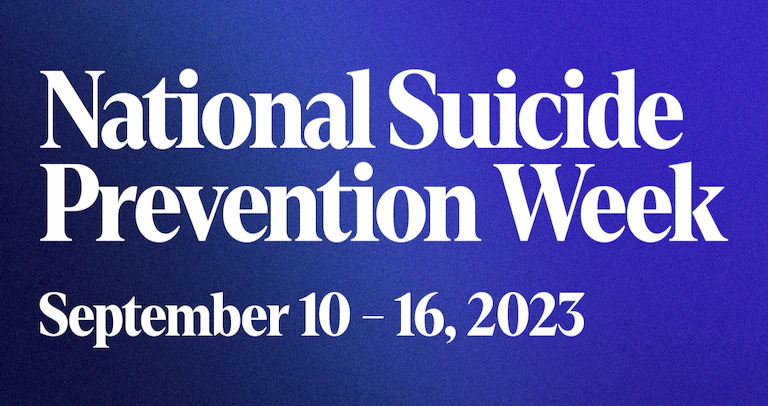Prevention: Talking About Suicide With A Loved One
Prevention: Talking About Suicide With A Loved One

Life can be a whirlwind of responsibilities, and it can be easy to let days or even weeks to go by not checking in on the people we love. But it’s critical to pause and consider how the simplest outreach makes a difference.
National Suicide Prevention Week serves as a crucial reminder of the significance of direct and honest conversations with loved ones who may be facing mental health challenges. Talking an often taboo topic out of the dark, and into the light has the power to save a life.
This week underscores the need for open and sincere communication within families and among friends. Mental health issues can affect anyone, regardless of age or background. When someone senses that a close friend or family member might be going through a difficult time, taking the initiative to initiate a conversation can be a lifeline.
Heading providers and medical staff discuss the topic of addressing suicide and offering their suggestions for starting the conversation, especially when the words are hard to say.
The Power of Using the Word
“It is important to actually ask the question using the word ‘suicide’,” shared Susan Hogan, a clinical therapist at Heading.
“Sometimes people just want the pain to stop and are looking for a way out for a short time, but they are thinking of making permanent decisions. Saying the word is important to address it directly.”
Detecting signs of emotional distress can be challenging, as individuals often conceal their pain. Therefore, taking the proactive step of reaching out is essential. Often people try to hide their distress to avoid being a burden on their loved ones. Susan suggests letting the person know that their pain is noticeable, and that you care.
As a way to open up the conversation Susan offered a script that may encourage a loved one to open up about their thoughts and feelings, “Tell that person, You are important to me. It seems like you are feeling overwhelmed by your feelings. Your feelings are valid and sometimes our brains get stuck in negative thoughts/feelings I want to make sure that you are safe so I need to ask if you are contemplating suicide or self-harm in any way. Can we talk about this now?”
Asking is Always Better Than Not Asking
Communicating a desire to listen without judgment and acknowledging a loved ones feelings can provide invaluable support. Be brave, and be direct. By engaging in direct communication with loved ones, individuals become a source of comfort and hope for those feeling isolated and overwhelmed.
“Ask your friend or family member if they have a plan of hurting or killing themselves,” shares Ryan McWhirter, psychiatric nurse at Heading. “I don’t anyone regrets asking. But many people wish they would have spoken to a loved one if they never did.”
It’s important to remember that a simple conversation can save a life.
Know About Resources
When someone is considering suicide they may not be considering resources available to help them in a crisis. Knowing what those resources are, and being willing to share them with a person in need can help.
Go-To resources for support include:
#988 Crisis Hotline which is available by phone or text.
#911 If a mental health crisis becomes an emergency 911 can help.
988lifeline.org the Web version of the Suicide and Crisis Hotline
NAMI.org/help The National Alliance on Mental Illness help page.
Apa.org/topics/crisis-hotlines The American Psychological Association publishes a page of crisis hotlines along with longer-term resources available by state.
What About When You’re the One Feeling Hopeless?
If you’re the one experiencing thoughts of suicide, help is available. Consider using one of the resources listed above.
“There will always be someone there to listen, even when you least expect it. Share your internal monologue with someone,” encourages Rae Reynolds, medical assistant at Heading. “People ready to help, and often when we reach out for help we find out that the person on the other end truly understands how we’re feeling and may have even been there themselves.”
The impact of compassion and concern should never be underestimated, not just during National Suicide Prevention Week, but throughout the year. Creating a world where no one suffers in silence, and where love and understanding prevail, is a collective endeavor.
Visit American Foundation for Suicide Prevention for more information: https://afsp.org/national-suicide-prevention-week/
